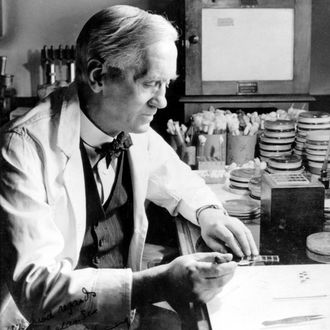
Antibiotic resistance was always something I was vaguely afraid of — I knew it was a growing problem, but it seemed far away, and not like something I needed to worry about. Then I watched a new TED Talk from science writer Maryn McKenna on the subject. Now, drug-resistant bacteria seem horror-film-level terrifying, and in an incredibly specific kind of way.
As McKenna explains, awash in a sea of overused antibiotics, bacteria are developing ways to fight the current drugs we have for them faster than pharmaceutical companies can produce new ones. In fact, she notes, bacteria develop resistance to new drugs so quickly that many pharmaceutical companies have decided it’s no longer in their best interest to try to keep up. Worldwide, an estimated 700,000 deaths each year are caused by antibiotic resistance, according to a research project commissioned by the British government — a number that could reach 10 million deaths per year by 2050.
There are some big ways to fight this big problem, such as requiring agriculture to give up or limit antibiotic use. But there are small ways, too, McKenna said. Stop eating meat from animals raised on routine antibiotic injections, for one; stop demanding antibiotic prescriptions when they’re not necessary, for another. “If you’ve ever bought a fluorescent light bulb because you were concerned about climate change, or read the label on a box of crackers because you think about the deforestation from palm oil, you already know what it feels like to take a tiny step to address an overwhelming problem,” McKenna says. It’s a scary message, but a hugely important one. Just watch her video.




